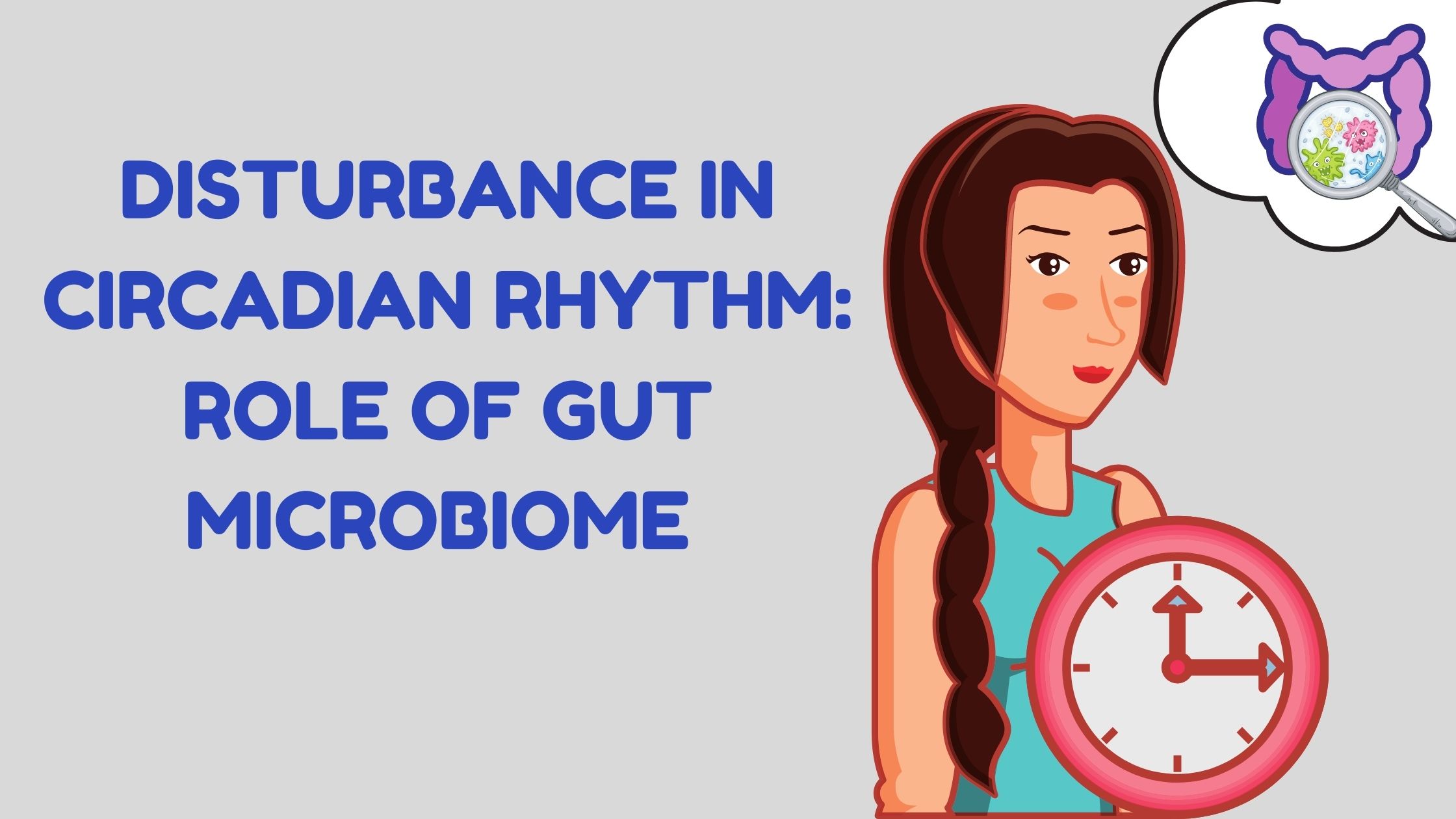The invisible guests in our body-Gut Microbiome (bacterias & their genes) make most of the cells in our body. Epigenetically, we are only 1% humans. Our body has more foreign cells than human cells. Bacteria inside our body plays a major role in maintaining & improving our holistic health. It improves our metabolism & satiety level including preferences for food & meal sizes, influences our emotions( & mood), pain sensitivity & social interactions, facilitates absorption of nutrients, synthesis of vitamins, communication between brain & gut( through brain gut axis) & release of essential neurotransmitters. In other words, it plays a major role in our life decisions.
Depending upon our gut diversity & composition, our body either gets nutrients or toxins from the good we eat. Any imbalance in gut bacteria (or gut dysbiosis) can be starting point of chronic diseases & various metabolic disorders such as cancer, cardiovascular diseases & chronic kidney disease(to name a few).
Circadian Rhythm or sleep-wake cycle plays an important role in our overall health, Any disruption in circadian rhythm can lead to various chronic diseases such as diabetes, obesity, depression & even cancer. As such each organ of our body including our gut microbiome has its own circadian rhythm. Both our gut microbiome & circadian rhythm are intertwined through regulation of our metabolism. Variations in circadian rhythm of gut microbiota impact our body’s circadian rhythm to regulate many core processes including our metabolism.
Metabolites (short chain fatty acids such as butyrate) released/produced by our gut microbiome from the food metabolised by them such & bile acids facilitate gut microbiota – our body’s circadian rhythm communication.
Gut Microbiome & our circadian rhythm both interact closely to alter our body’s physiology & metabolism. Evidence suggests that gut microbiome & circadian genes communicate with each other. The characteristics of gut microbiome & metabolism are linked to our circadian rhythm. Important species of our gut bacteria-Clostridiales, Lactobacillales, and Bacteroidales, forming 60% of our gut microbiota, exhibit diurnal fluctuations . Besides, two major phylums of gut bacteria that form 90% of total gut bacteria- Firmicutes & Bacteroidetes shows cyclical changes from day to night that are not only related to our diet structure but also to biological clock & gender. As such misalignment in circadian rhythm, deprived sleep & shift working brings changes in our gut microbiome structure & hence alteration in circadian gene expression.
Disturbances in sleep-wake cycle can change the composition & structure of your gut microbiome & may lead to gut dysbiosis.
The interplay between our circadian clock and microbiota oscillations influences many physiological processes, including metabolism, the regulation of the endocrine system, and immune system function.
Hormones, which are secreted by the endocrine system, play a key role in circadian rhythm and influence the gut microbiota, which impacts the secretion of such hormones. Melatonin, for instance, is important for diurnal rhythms and can determine the circadian rhythms of some gut microbes. Hormones such as growth hormone, testosterone, and estradiol secretion are altered and the levels of ghrelin, which controls appetite and thus the timing of food, are reduced in the presence of microbes such as Bifidobacterium and Lactobacillus, and increased in the presence of Bacteroides and Prevotella.
Alterations of circadian rhythms due to shift work or jet lag have all been associated with an increased prevalence or severity of depression which again links disturbance in circadian rhythm with our gut microbiome equilibrium.
Metabolic disorders can occur due to interaction diet & environmental factors including our circadian rhythm disruption & changes in our gut microbiome composition. For example, gut microbiome of people suffering from diabetes, obesity & cardiovascular diseases are going to cause inflammation in case of disturbed circadian rhythm.
People suffering from depression often experience milder symptoms at night & more severe ones during morning. Onset of depression is also linked to biological rhythm such as length of day & intensity of ambient light. Depression & anxiety are often associated with sleep disorders. This clearly indicates correlation between imbalance in our gut microbiome & circadian rhythm.
For maintaining a healthy gut microbiome & hence keeping chronic diseases at bay, it is necessary to bring stability & consistency in our sleep-week cycle. Want to learn if disturbances in your circadian rhythm are driving you towards chronic diseases such as depression, obesity, diabetes & cardiovascular diseases? Sign up for our free discovery call here.
Sources



Leave a Reply